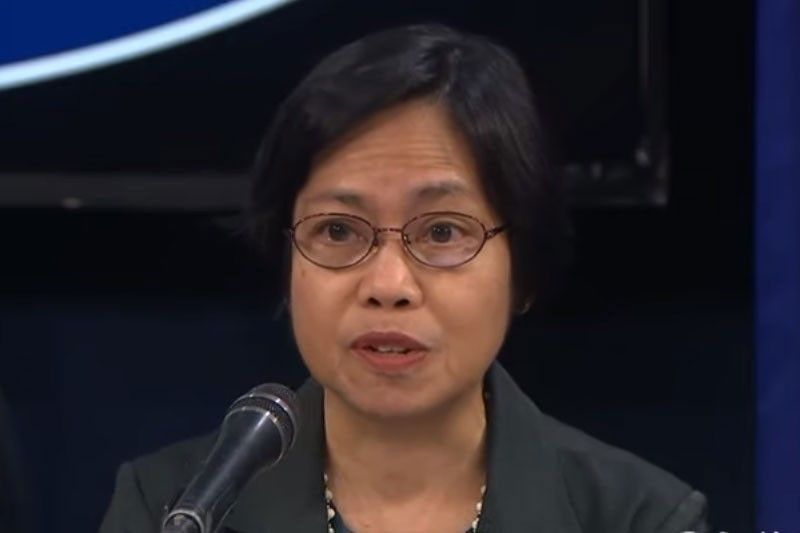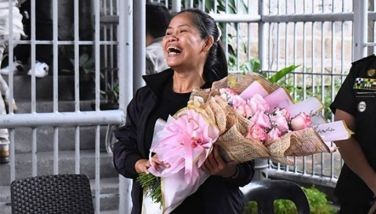40 RITM staff infected, but asymptomatic

MANILA, Philippines — Forty employees of the Research Institute for Tropical Medicine, the country’s leading testing center for coronavirus disease 2019 or COVID-19, have tested positive for the virus.
But RITM director Celia Carlos yesterday gave assurance that the facility will not close down and would only reduce its operations as they prioritize the processing of samples collected from their employees.
Carlos noted in an interview with CNN Philippines that their infected workers only had mild symptoms and are now undergoing quarantine at RITM dormitories.
Those who have serious symptoms have been admitted in hospitals.
Following this, the RITM is requesting the augmentation of its manpower by 40 workers. It has also been doing disinfection of facilities.
Last Sunday, Health Undersecretary Maria Rosario Vergeire announced that operations of RITM had been scaled down to ensure the safety of its workers. She admitted that this development would impact on the number of confirmed COVID-19 cases being reported every day.
Vergeire reported in a press briefing yesterday that 55,465 individuals have been tested in 17 accredited laboratories of the Department of Health (DOH).
Of that number, a total of 34,350 cases were processed at the RITM; 2,699 at the Vicente Sotto Medical Center; 3,107 at the Baguio General Hospital; 1,590 at the Philippine Red Cross in Mandaluyong; 1,264 in University of the Philippines-National Institutes of Health; 1,118 in San Lazaro Hospital; 1,612 in St. Luke’s Quezon City; 130 in Chinese General Hospital; 179 in Detoxicare Molecular Diagnostic Laboratory; 2,365 in Lung Center of the Philippines; 101 in Victoriano Luna Hospital; 265 in The Medical City; 568 in Makati Medical Center; 1,646 in St. Luke’s Medical Center Taguig; 2,402 in Southern Philippines Medical Center; 1,903 in Western Visayas Medical Center, and 174 in Bicol Regional Diagnostic Laboratory.
Vergeire said three of the eight community quarantine facilities in Metro Manila have accepted COVID-19 patients, including the Las Piñas Rehabilitation Center, which has admitted 26 patients, and Rizal Memorial Coliseum with 17.
Meanwhile, 56 laboratories have submitted applications to the DOH to become a sub-national laboratory for COVID-19.
The Food and Drug Administration also approved 16 rapid antibody test kits as of April 16.
FDA director general Eric Domingo said the test kits have completed the necessary documentary requirements and went through review and evaluation.
The rapid test kits detect the presence of antibodies in an individual’s blood or serum. But since they can produce false negative and false positive results, samples tested using these kits must undergo confirmatory test using RT-PCR or real time-polymerase chain reaction which measures the viral load in a body.
Domingo said each of the kits may vary and should only be administered by trained health professionals.
As more institutions were allowed by DOH to conduct COVID-19 tests, Cabinet Secretary Karlo Nograles said the government has approved the guidelines for expanded testing as it seeks to bolster its test capabilities to contain the virus and to get a clearer picture of the infection.
“With government now focused on expanded testing and local governments now also in a position to conduct their own tests, we would like to touch on some of the guidelines regarding these,” Nograles said at a press briefing yesterday.
Under the guidelines, expanded testing covers all individuals who are at risk of contracting COVID-19 infection, including suspect cases or individuals with history of travel to affected countries and exposure to or contact with confirmed cases, whether they have symptoms or not; and healthcare workers with possible exposure.
The guidelines also grouped individuals at risk into four, arranged in order of greatest to lowest need for testing.
Subgroup A consists of patients or healthcare workers with severe or critical symptoms and who have history of travel to infected countries or contact with a confirmed case.
Subgroup B is composed of patients or healthcare workers with mild symptoms, who just came from a foreign trip, had contact with confirmed case and are considered vulnerable like senior citizens, pregnant women, and those with existing medical conditions.
Subgroup C refers to patients or healthcare workers with mild symptoms, who just came from a foreign trip, and had contact with a confirmed case.
Subgroup D consists of patients or healthcare workers with no symptoms but who have history of travel to affected countries and contact with confirmed cases.
“Due to global shortage of testing kits and limitation in local capacity for testing, there is a need to rationalize available tests and prioritize subgroups A and B.?However, in view of the expansion of testing capacity and to ensure healthcare workforce safety, subgroup C will be tested and health workers prioritized,” Nograles said. – With Alexis Romero, Cecille Suerte Felipe
- Latest
- Trending



























